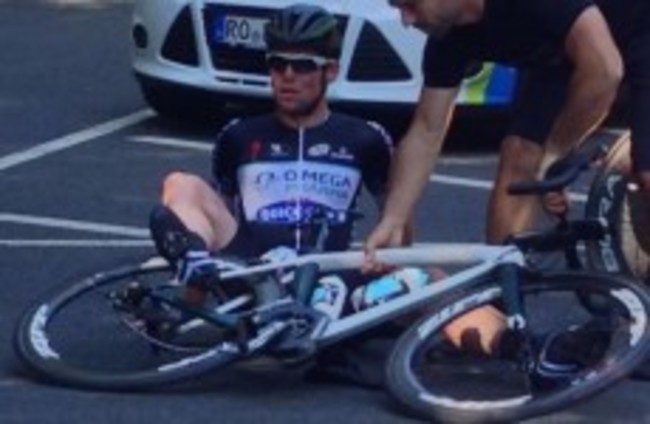BANG! WHAT JUST happened? Am I alive, am I paralysed? Is my bike okay?
Sorry to be a Scrooge at this time of year, but you will crash your bike at one point or another — and winter is the most likely time for that to happen.
Why? There are a plethora of reasons, but some of the most common ones are a faulty bike, poor road conditions, bad driving from road users and a lack of concentration on your part.
It’s a shocking and confusing situation because very often, it’s over before you know it and what’s worse is it could probably have been avoided. But pay attention and remember these few things to make the best of a very, very bad situation.
We’ve included what to do if a vehicle has caused you to crash — but we’re not suggesting this is always the case.
- Get yourself off the road ASAP!
Crashes in urban areas are commonplace with so much traffic. You might have only been clipped by a car travelling at 20kph but if you’re catapulted off your bike, you could end up on a road with oncoming traffic. Unless you are seriously hurt, get out of further harm’s way.
- Assess yourself for injuries.
Broken collar bones and road rash are the most common injuries. Thankfully, they clear up pretty quickly and you’ll be back riding in no time. They are NOT as serious as they first appear. The shock of what just happened will exacerbate the pain, but that pain will subside by the time you reach the hospital.
- Call an ambulance
Unless you can absolutely get back on your bike and go to where it was you were headed, don’t call an ambulance. If you’ve hit your head (and are conscious!), call an ambulance and wait there to be picked up by one.
- Talk to witnesses
Right now your health is the number one priority but getting the details of someone who witnessed the crash is very important. Their version of events is often the most accurate, as they’ve no incentive to fabricate the truth.
- Get the details of the person who caused the accident (assuming it’s not you)
We’re not suggesting you, as the cyclist, were totally innocent, but it’s never any harm to photograph the registration number of the vehicle and the driver if possible. Get as many details as you can about what happened. Who knows how far the case will go? Ideally, get him/her to call you right there, so you have the correct number… Someone might ‘accidentally’ give you incorrect details…
- Talk to the guards
After calling the ambulance, call the guards and record what happened with them. This will be key if you decide to take the matter further.
- Insurance
If you value your bike, you should always have it insured. Period. Very few bikes will survive a bad crash and if you’ve spent a small fortune on it, you should consider getting the best insurance possible for it. You’ll have 28 days (usually) to report the incident, so in this time, it’s important you have all the necessary details about the incident — when, where, how, as well as the pictures.
We know, a lot to consider after a crash…
First published at 06.15










Kick the car that cut you off, back on the bike and always be pedaling.